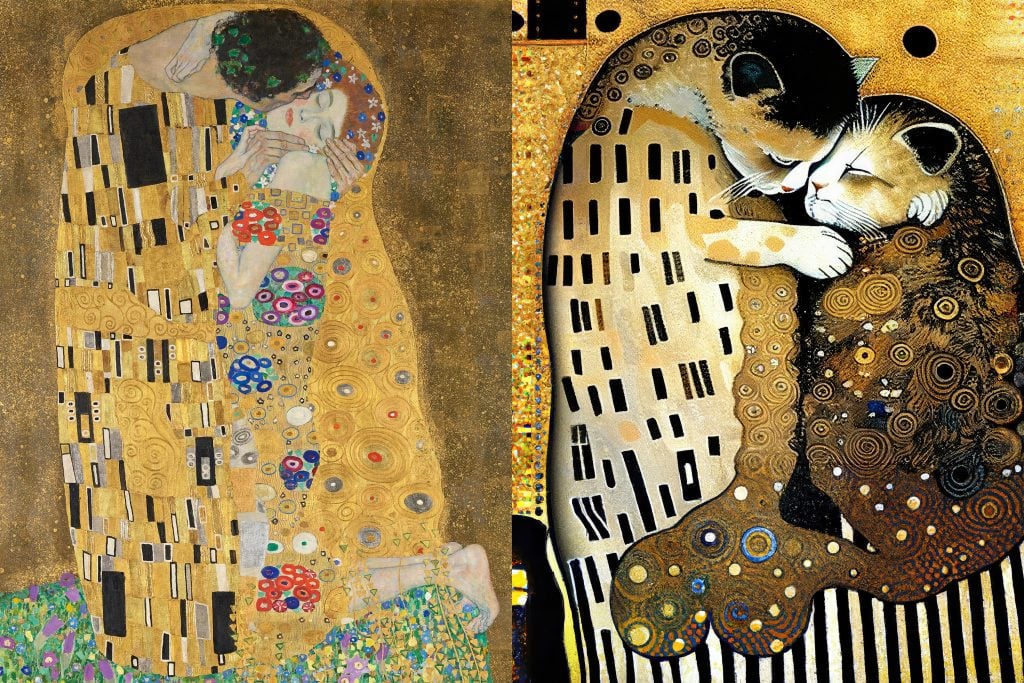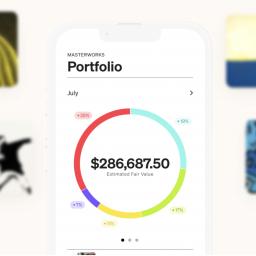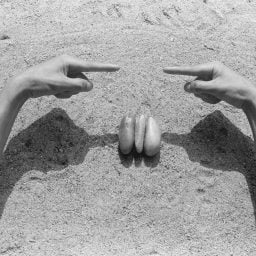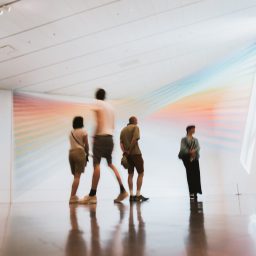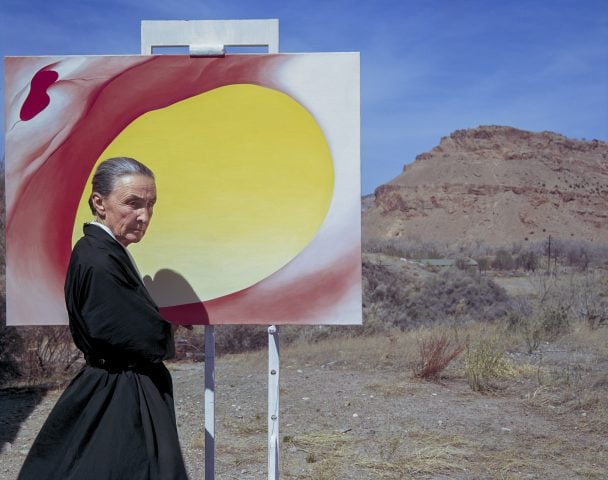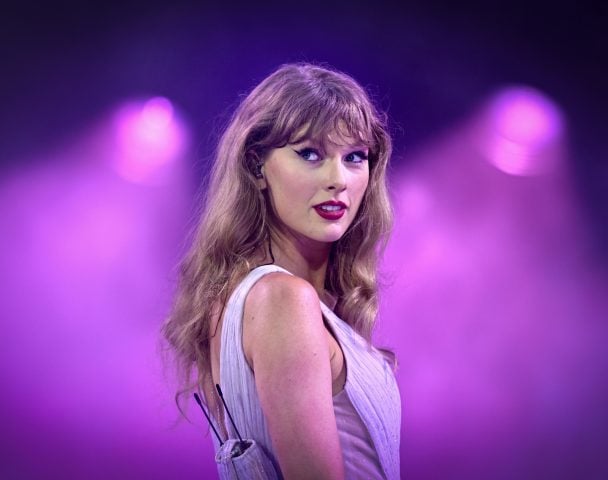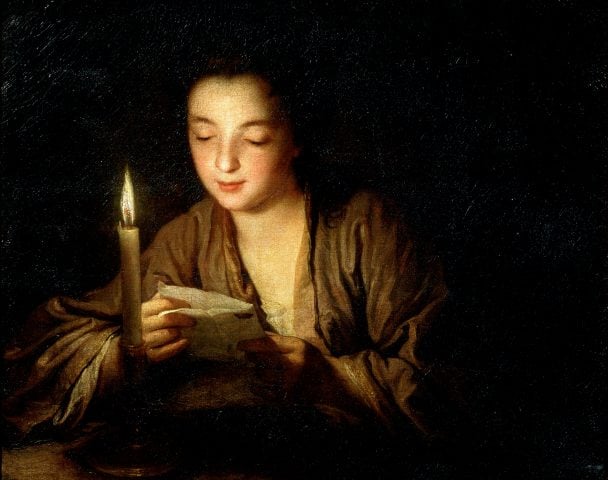Gustav Klimt loved cats, particularly one that went by the name “katze” (“cat” in English). The internet loves cats as well, with cat memes and gifs continually going viral since the aughts. It follows, then, that the Vienna Tourist Board would take the opportunity with the advent of widely available AI tools to reimagine one of Klimt’s—and the world’s—most famous and iconic artworks, The Kiss (1907–09), with the figures replaced by the furry and adorable creatures in its newest campaign UnArtificial Art. Cats too have taken the place of Egon Schiele in his 1912 self-portrait, and cats abound in Pieter Breugel the Elder’s 16th-century Tower of Babel.
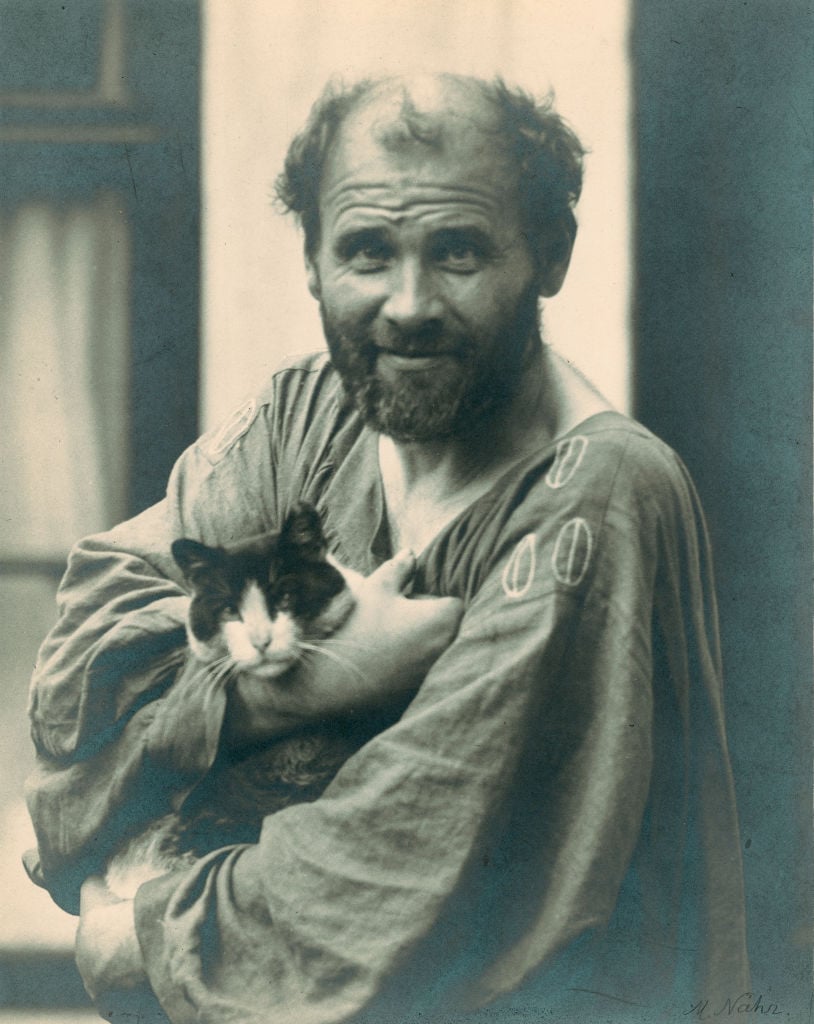
Gustav Klimt holding one of his cats in his arms, in front of his studio in Vienna, 8th district, Josefstaedter Strasse (ca. 1912). Photo: Moriz Naehr. Courtesy of Imagno/Getty Images.
AI has taken the world by storm recently, with the generative programs being used for myriad applications—including creating art. What many don’t realize, though, is that AI tools work from references, and in the case of AI art, these references are taken from artworks made by humans—both contemporary and historical.
CEO of the Vienna Tourist Board, Norbert Kettner, said, “The campaign aims to show that AI art is only possible because an algorithm references real works made by real humans, and the originals can often only be seen in Vienna. The Viennese Modernism movement that revolutionized the artworld over a century ago continues to live on and affect today’s art through the algorithms that guide AI creations.”
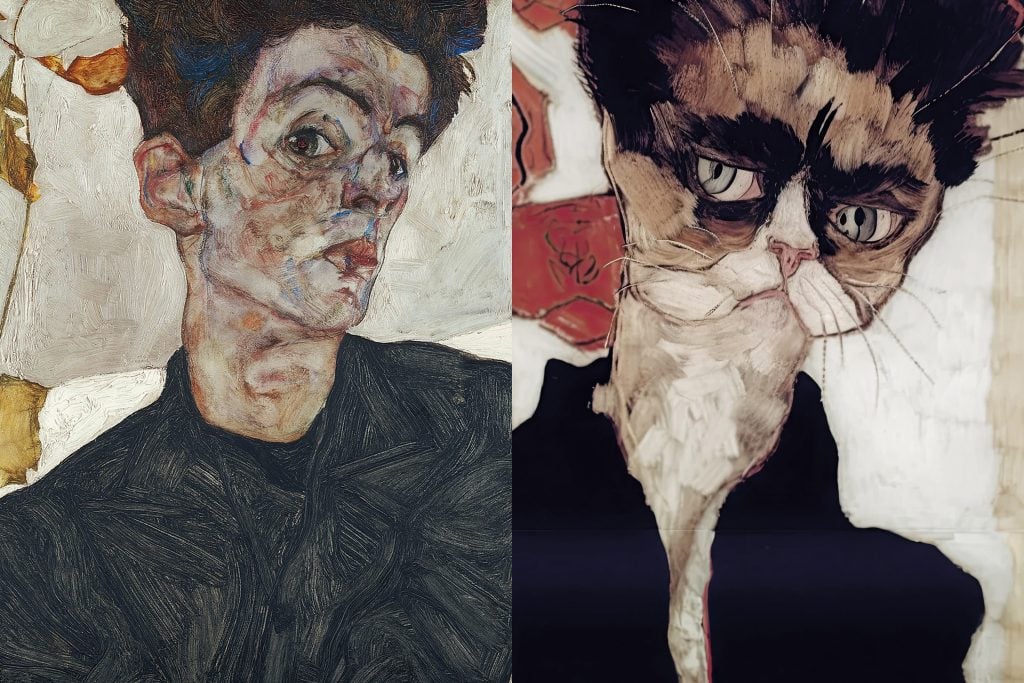
Left: Egon Schiele, detail of Self-Portrait with Chinese Lantern Plant (1912). Collection of the Leopold Museum, Vienna. Right: A.I. picture generated on Midjourney by Vienna Tourist Board. Photos: © Leopold Museum and Vienna Tourist Board.
Vienna is home to over 100 museums, several of which hold the largest collections of original works by Klimt, Bruegel, and Egon Schiele—to name just a few—that visitors can view in real life, and “See the Art Behind AI Art.” In conjunction with the lighthearted cat art facet of the UnArtificial Art campaign, the Vienna Tourist Board also tapped art expert Markus Hübl to edify the history of Viennese art and delve into the intersection of AI art and art history in a short film.
Vienna’s “tongue-in-cheek” cat-centered AI art campaign isn’t the only thing the city is using AI technology for either: the Belvedere museum (of which Klimt’s The Kiss is part of the permanent collection) partnered with Google Arts & Culture and employed AI to reconstruct the Faculty Paintings by Klimt, which were destroyed by the Nazis nearly 75 years ago. Using black-and-white photos that existed of the works, AI was able to bring them back to life in full color. The year 2023 is also an excellent year to visit Vienna, as it marks the 300th anniversary of the Belvedere, which has an unparalleled collection of Klimt’s art.
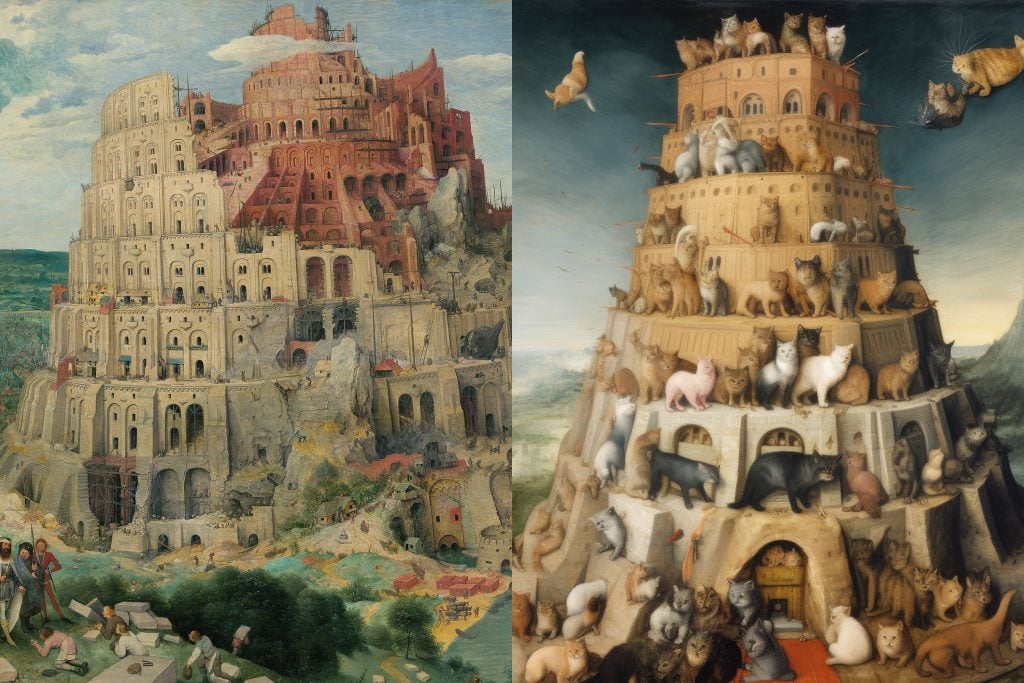
Left: Pieter Bruegel the Elder, Tower of Babel (ca.1563). Collection of the Kunsthistorisches Museum, Vienna. Right: A.I. picture generated on Midjourney by Vienna Tourist Board. Photos: © Kunsthistorisches Museum and Vienna Tourist Board.
And with the city’s numerous museums housing much of art history’s most famous and important artworks, it is the perfect place to visit and see the art that makes AI art possible in the first place.
Learn more about visiting Vienna here.
